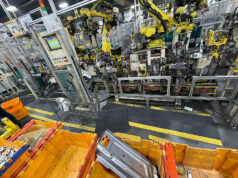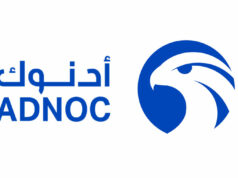THE United States’ goods trade deficit with the Philippines widened by more than a fifth last year, according to the US 2019 National Trade Estimates (NTE) report which largely reiterated concerns raised by Washington on trade barriers put up by the Philippine government.
Published March 29 on the US Trade Representative’s website, the 2019 NTE report said Washington’s goods trade deficit with Manila grew 22.5% to $3.9 billion last year from $3.18 billion in 2017.
US goods exports to the Philippines rose 3% to $8.7 billion while imports grew 8.4% to $12.6 billion.
In 2018, the Philippines was the 32nd largest source of goods for the US, after placing 31st in the previous NTE report.
The annual report, which identifies barriers to trade, investment, and services that US businesses encounter around the world to help set the work agenda for the US government, noted issues with Philippine import policy; technical barriers to trade; subsidies; government procurement; intellectual property rights protection; and barriers to services, digital trade and investment.
The number of identified barriers to services declined to eight in 2018 from the previous year’s 10, with banking and advertising dropped from the list.
The NTE 2019 report noted, however, that the omission of certain barriers “does not imply that they are not of concern” to the US.
The current report said affected industries are audiovisual, express delivery, financial, insurance, public utilities, professional services, retail and telecommunications.
Although the report noted the full participation of foreigners allowed under the Foreign Investment Negative List, it noted that the definition of Internet businesses covers only providers that serve as carriers for transmitting messages and are not engaged in information creation.
“While US cloud service providers (CSP) Amazon Web Services (AWS), Google, IBM, and Microsoft are active in the Philippine market, they continue to face constraints that limit their participation, particularly in competing for government projects. The Philippines requires government agencies to procure cloud computing services from the Government Cloud (GovCloud), a cloud infrastructure set up by the Department of Information and Communications Technology (DICT). These restrictions could prevent Philippine government agencies from accessing best-in-class cloud services,” the report read.
In agriculture, the US continued to express concern about the Philippines’ high in-quota tariffs on corn, coffee, potatoes, pork, and poultry products.
“Since 2005, the Philippines has usually maintained (minimum access volume) levels at its Uruguay Round commitments despite dramatically increasing demand in the Philippine market for products subject to the MAV. The Philippine government increases in-quota volumes of affected MAV commodities in times of shortages, but because of its lack of predictability, the practice does not serve to relax the Philippines’ restrictive agricultural import regime,” it said.
On non-tariff barriers, the US noted legislative moves to convert its rice quotas into a tariff scheme and reiterated its call for the Philippines to retain its 2014 table of tariffs for agriculture products, granted as a concession for the final extension of the use of the quantitative restriction on rice.
Washington, however, did not acknowledge Manila’s decision to maintain the 2014 tariffs and lower tariffs for mechanically deboned meat (MDM) from poultry and said it continues to monitor the situation.
The Board of Investments’ fiscal incentives for Philippine-owned exporting firms; corruption at the Bureau of Customs and discriminatory government procurement rules against foreign-made goods were likewise tagged as persistent barriers.
The report also cited US rights holders’ concerns of increasing online piracy, counterfeit drugs and fake goods.
Last year, the interagency National Committee on Intellectual Property Rights seized a record P23.6 billion worth of fake goods and pharmaceutical products, surging from 2017’s P8.2 billion haul.
TIFA PROGRESS
The 2019 NTE noted areas where the US sees further improvement following a resolution between the two sides in the Trade and Investment Framework Agreement (TIFA).
Of the points resolved in the TIFA, it said Manila acknowledged Washington’s’ interest in extending certain tariff rates on agricultural products including MDM poultry meat; Manila’s discriminatory treatment in the storage of imported meat in wet markets; and the Philippines’ commitment to ensure proper valuation of agricultural imports consistent with the World Trade Organization rules.
The report also noted the Philippines’ commitment to respecting prior trademark rights and not restricting the use of common names, while also not providing automatic protection to geographic indications. — Janina C. Lim



